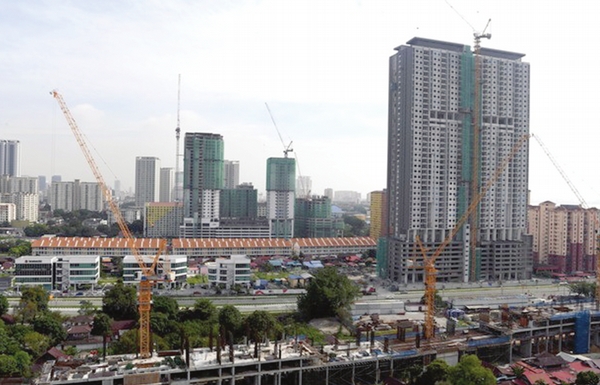Is Penang's property market finally cooling?
Published on: Friday, October 12, 2018

Penang: The property market in Penang is known to be among the most expensive in the country, with prices having soared over the years despite various cooling measures implemented by the authorities.Recently, there have been signs of property prices stabilising and the state has even reported property overhang.Since 2014, the Penang government has stepped up the development of affordable housing projects and has also imposed various measures in its attempts to keep property prices under control.
ADVERTISEMENT
Among the locations in Penang considered as prime are Gurney Drive, Tanjong Tokong and Batu Ferringhi, where properties are beyond the reach of the local people as most of them are priced at above RM800 per square foot.Factors that have contributed to the rise of Penang property prices include speculation, shortage of land on the island, increase in the cost of building materials and an influx of foreign buyers which is partly due to the weak ringgit. State Housing, Town and Country Planning, and Local Government Committee chairman Jagdeep Singh Deo said since 2014 the state government has implemented various cooling measures to contain the property prices, which have gone up exorbitantly since 2008."We need the measures to cool the market. In fact. from 2008 to 2016, Penang property prices have, on average, jumped up 80 percent," he told Bernama, here, in an interview.
ADVERTISEMENT
Among the measures implemented by the state government is the moratorium on the sale of houses. For low-cost and low medium-cost houses, the moratorium is 10 years, whereby the owners cannot sell their units within 10 years of purchase. The moratorium on the sale of affordable homes costing below RM300,000 is five years. As for the higher-priced houses, the buyers cannot sell their property within three years of purchase or else they will be deemed to be speculators and will need to pay a two percent approval fee.
ADVERTISEMENT
"For foreign buyers, the state has imposed a few conditions. On Penang island, for instance, they cannot purchase landed properties priced at less than RM3 million and high-rise residential units costing less than RM1 million. On the mainland, they cannot buy landed properties less than RM1 million and high-rise units less than RM500,000."On top of that, foreign buyers are also subjected to a three percent approval fee," Jagdeep Singh explained.He said since 2008, the Penang government and private-sector developers have completed 28,950 low-cost and low medium-cost units and affordably-priced units costing below RM300,000."These projects covered all the five districts in Penang," he said, adding that upcoming projects involving 22,065 units in the three categories are now under construction while the state has also approved the building of another 32,212 similar units.Following the various cooling measures implemented by the state government, there have been signs that Penang's property prices have stabilised.However, the authorities and developers are now facing another problem, namely property overhang which refers to built properties that have obtained the certificate of completion and compliance but have remained unsold.According to the National Property Information Centre, Penang had the highest number of overhang units in Malaysia for 2017 with 4,903 units.A study on property overhang carried out by the State Housing, Town and Country Planning, and Local Government Committee showed that out of the 4,903 overhang units, 2,600 were properties priced above RM500,000.Real Estate and Housing Developers Association Penang branch chairman Datuk Toh Chin Leong, however, said property overhang was not a worrying sign as it could be due to the state's soft property market over the last few years.He is quite optimistic that the property market would recover by next year or the following year as house prices are expected to drop by at least 10 percent following the implementation of the Sales and Service Tax (SST) on Sept 1.The SST's impact on the property market can only be seen next year when house buyers are expected to feel its positive effects, he added.Jagdeep Singh, who is the State Assemblyman for Datuk Keramat, also said that the Housing and Local Government Ministry was currently restructuring its housing programmes following the change in the federal government after the 14th general election on May 9.He said during his last meeting with Housing and Local Government Minister Zuraida Kamaruddin, she gave her assurance that Penang would not be neglected when it came to housing matters.Since 2008, when Penang was taken over by Pakatan Harapan, the Barisan Nasional government did not implement any of the government housing programmes like the People's Housing Project (PPR), 1Malaysia People's Housing Scheme (PR1MA) and 1Malaysia Civil Servants Housing Project (PPA1M) in Penang.Jagdeep Singh said during his meeting with Zuraida, he was told that the various public housing programmes, which are currently handled by different ministries, may be placed under one roof in the Housing and Local Government Ministry for more efficient monitoring.Stay up-to-date by following Daily Express’s Telegram channel.
Daily Express Malaysia




